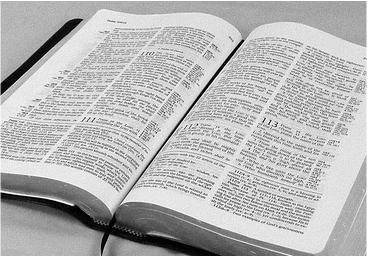|
Today’s Scripture points to the coming judgment when God will destroy evil to the point that He is covered in the blood of the wicked. Isaiah Chapter 63 Lessons from the text Judgment Leads to Praise When Isaiah hears the news that God will devastate nations, He praises God for His lovingkindness. It seems odd to call someone loving who is destroying. Vengeance and kindness do not go hand in hand. So, why does Isaiah praise God? God is righteous. When He is angry, He has just cause to be. When He destroys, it is because the people have chosen wickedness over righteousness. We cannot tell when someone has completely forsaken righteousness, but God does. We do not know when a person is only living to perpetuate evil, pursuing the causes of hatred and destruction. God looks down and sees the hearts of men and knows exactly when He needs to cut off someone before that person does anymore damage to the world. It is actually because He loves mankind that He destroys us. Consider this, what would happen if God left evil unchecked? If people could do as they pleased with no consequences? If you watch an undisciplined child, you know the answer: they will run amuck causing more damage to people and objects than they would good. Seeking to satisfy the self, they do not consider the feelings or needs of others. God has mercy on humanity by sending judgments. They prevent evil from spreading uncontrollably. Consider if God had allowed Adolf Hitler to win WWII? He has to make sure that tyrants fall or life would be unbearable to the poor, disabled, and righteous. Of course, every bad thing that happens to a person is not necessarily a judgement from God. Jesus actually criticizes those who accredit natural disasters and accidents as judgments on the wicked (Lk. 13:4-5). We are not to conclude what is or is not a judgment of God. When bad things happen, to nations or individuals, we are to turn to God and give Him praise for His kindness towards man. Every single act He does is intended for the good of His people, even when it seems harsh, brutal, or just plain confusing. The point is to praise God when you see Him move and acknowledge that He has dealt great mercy and lovingkindness towards man by allowing us to continue thus far. Verse by Verse Commentary 1 This verse opens a question and answer section to disclose end-time events. Bozrah was the capital of Edom and lies in modern day Jordan. The Lord, who is righteous and mighty to save, is coming out of the capital of an enemy of Israel arrayed with glory and greatness of strength. 2 The Lord’s cloths are covered in red at the bottom, as though being splashed as He stomped around. The questioner wants to know what He has being doing. 3 God replies that instead of grapes, He was treading down men. Revelation describes the scene as the Lord’s vesture being dipped in blood (19:13). His wrath against the wicked is going to be so fierce that it will literally be a bloodbath (Rev. 14:20). God alone will destroy; His anger against sin will cause Him to take vengeance on the ungodly. No one else has the right to destroy His creation. As man’s Maker, He reserves the right the destroy those who refuse to be molded for good (Jer. 18:1-10, Isa. 30:14). 4 When God manifests Himself to rule, it is redemption for the saints and a day of vengeance on the ungodly. Redemption only occurs along with the destruction of evil. All of God’s people will be able to flourish and rule when the wicked are removed. This is also true of individual salvation; when one accepts Jesus and is born again, one dies to the flesh and is born of the spirit. What is wicked must perish before one can be redeemed. 5 Echoing Isaiah 59:15-16, God says that there was none who helped or upheld man, and so He had to bring salvation. God looks on the earth and sees that none are righteous (Ecc. 7:20). As the Creator, He is disappointed that His creation is full of sin, evil imaginations, and desires for wickedness (Gen. 6:5-6). Instead of being a beautiful creation, humanity became marred with Adam and Eve’s sin and has never recovered. Therefore God acted to create redemption to give man the ability to return to God’s original design, that is, to be righteous. God upholds His salvation with fury; angry at sin, He works fervently to show people how to leave sin and live in righteousness. 6 Those who reject salvation will have to answer to God’s anger. He has gone to extraordinary lengths to present salvation to the world. He looked on humanity, saw that there was no one to help, and gave humanity the help it needed only to have men spurn His help. God will crush such people. 7-11 In response to the vision of judgment, Isaiah praises God by reviewing His interactions with Israel in the past. 7 God has given Israel good based on His lovingkindness and mercy. Noteworthy is that nothing is said about Israel deserving these blessings. 8 God blesses Israel because He has deemed them His children. God has faith in Israel and acts accordingly. 9 God relates to man’s pain. Because of His love for man, He rejoices when man rejoices and mourns when man mourners. Accepting Israel as His child, God saved them from their affliction, bringing them out of Egypt. With a careful hand, He instructed them with laws and ordinances and kept His presence always with them through a cloud of glory (Exo. 40:36-38). 10 Despite all God did for Israel, they rebelled against Him. This grieved God. Being righteous, God had to turn and fight against His children even though it hurt Him to do so. 11-14 As God was allowing Israel to be afflicted, God remembered the intercession of Moses, in which Moses pleaded for God to spare Israel for God’s name’s sake; if God destroys His own children, how will the world respond? God could be mocked with the accusation that He brought them out of Egypt only to be unable to fulfill His promise to give them the land of Canaan. The same God who led and sustained Israel through the wilderness should also be able to deliver the Jews from their enemies (Exo. 32:11-14). To prove to the world that He is able to keep His promises, God led Israel back from oppression again and again (Jdg. 2:11-18). He built up His name by leading them to peace. 15-19 Isaiah now cries to God using the same approach as Moses’ intercession. He asks God where is His zeal that once fought for Israel and where are His tears that once fell for His children. Isaiah wants to remind God of the past as a basis for his request for help for his present nation. Because God has entered into a covenant relationship with Israel, Isaiah can appeal to that covenant to ask for help. Even though the people who entered into the covenant did not know the full extent of the covenant - that the Jews would be a full-fledged country - the covenant still stands. God is the Father of Israel. Isaiah appeals to God to restore that relationship by returning to Israel. He also reminds God that the Jews have only inhabited the promise land a few centuries, and God has pronounced that they will have to flee their land (Isa. 22:1-14). This deportation is not only painful for the Jews but it also reflects poorly on God because God’s temple is destroyed and defiled. Noteworthy is that Isaiah appeals to God based on God’s character and submits himself and his nation to God. ___________________ Thank you for your faithfulness in studying God’s word. Please comment below to share what you learned from today's lesson.
0 Comments
Leave a Reply. |
Devotional Categories
All
Archives
September 2023
|
|
Join my mailing list!
|
Thank you!You have successfully joined our subscriber list. |
|
© 2024 Melissa Beaty
|
